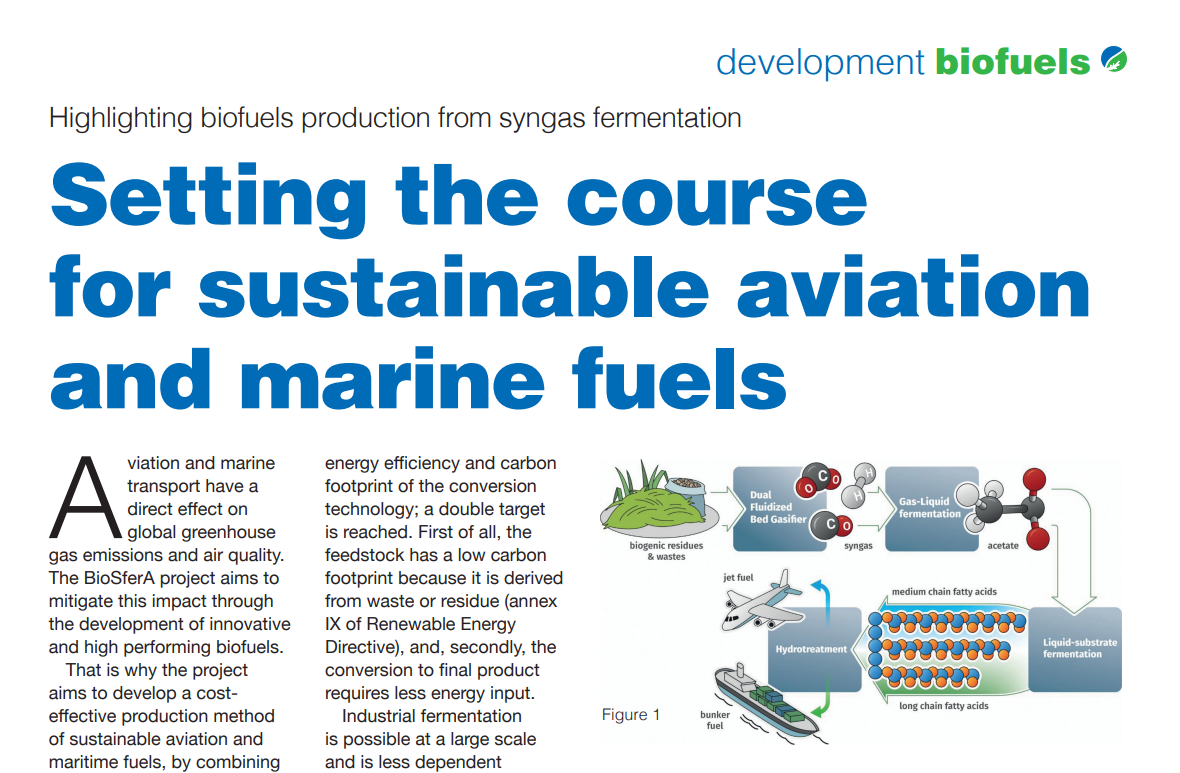BioSFerA aims to develop a cost-effective interdisciplinary technology to produce sustainable aviation and maritime fuels. During the first months of activity, the consortium has proceeded with some preparatory activities including the elicitation of stakeholders and market needs, the definition of key performance indicators (KPIs) for the evaluation of the project, and the BioSFerA feedstock selection and characterization.
The elicitation of stakeholders requirements aims to assess the potential replicability and the effectiveness of the project functionalities provided as well as to align them with the market needs in order to ensure a well-oriented project implementation. Thanks to this analysis, specifications and peculiarities that need to be met for each of the involved stakeholders (technology providers, feedstock suppliers, refineries, fuel traders, final end-users, research centers, policy makers) have been gathered, starting from the feedstock supply and conversion and ending to the targeted drop in biofuels for the aviation and maritime sector.
The selection of KPIs has been performed in order to assess the overall concept development in terms of a technical, economic, environmental and social perspective. In particular, 23 technical KPIs, 10 economic KPIs, 15 environmental KPIs and 12 social KPIs were elected.
Finally, the feedstock selection was based on the fulfillment of three main prerequisites: availability/sustainability (i.e. capacities for large scale applications), favorable technical characteristics for good performance at the integrated BioSFerA system and market competitiveness. The selected BioSFerA feedstock inventory includes agricultural (prunings, straw), forestry (logging) and industrial (wood) residues as well as airports/ports derived biogenic wastes. Based on this selection but also on previous successfully tested similar feedstock, bench-scale gasification tests have started.
In the next months the consortium will finalize a case studies analysis aiming to assess the replicability of BioSFerA concept at commercial scale in terms of feedstock capacities. This will be achieved via the development of potential commercial BioSFerA scenarios across Europe involving the BioSFerA feedstock selection and current techno-economic data of the selected countries. Moreover, CERTH with the support of the project technology providers will define the main concept for the overall process for the conversion of the selected feedstock to drop-in biofuels. Process simulations to solve heat and mass balances for the overall process will be performed, acting as a benchmark for the following lab and pilot activities.
On the lab scale gasification and syngas fermentation tests for the biological production of syngas are ongoing.
Gasification of different biomass (sunflower husk and ash, Greek olive prunings pellets, straw) has been tried in a lab scale gasifier in order to collect information for the future scale up, together with evaluations about the contaminants influence on the process (e.g oxygen, nitrogen…). In the meantime, four acetogenic strains have been tested, two Clostridia and two Morella, using the water after reformer with good results (both showed to be able to growth in the media). A M. thermoacetica strain has been also tested with similar results. Further achievements will be available soon allowing to identify the most suitable Clostridium strain in terms of growth and productivity as well as the best cultivation media.







